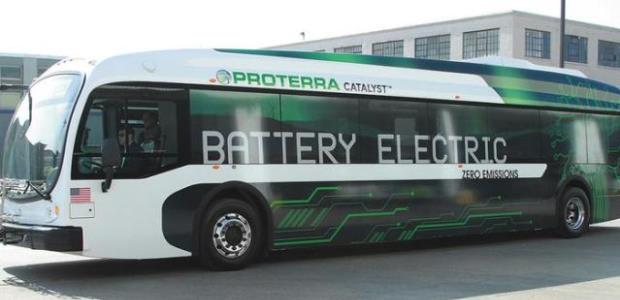
CARB Approves Low-Carbon Transportation Plan
The plan allocates $398 million to incentivize clean heavy-duty trucks, buses, and freight projects, including $190 million for advanced-technology freight equipment such as yard trucks, forklifts, and cranes. Most of the money comes from California's cap-and-trade auction proceeds.
The California Air Resources Board recently approved a $663 million low-carbon transportation plan to increase the use of clean cars, heavy-duty trucks, buses, and freight equipment in the state. The funding will help the state cut climate-changing gases while promoting technologies that reduce harmful diesel emissions, particularly in disadvantaged and low-income communities.
"This investment will continue to drive the market for new vehicle technologies and put more ultra-clean and zero-emission trucks, buses, and cars into the communities across California that need them the most," CARB Chair Mary D. Nichols explained.
The plan allocates $398 million to incentivize clean heavy-duty trucks, buses, and freight projects, including $190 million for advanced-technology freight equipment such as yard trucks, forklifts, and cranes. Most of the money for the FY 2017-18 plan comes from California's cap-and-trade auction proceeds.
While diesel trucks account for only 2 percent of vehicles in the state, they emit the majority of the smog-forming pollution, and two-thirds of all diesel soot. In 1998, California identified diesel particulate matter as a toxic air contaminant based on its potential to cause cancer and other health problems.
CARB reported that there are now more than 20 manufacturers offering 60 eligible models of hybrid, low-NOx, and zero-emission trucks and buses — companies that include BYD, Complete Coach Works, Efficient Drivetrains Inc., El Dorado, Gillig, Motiv Power Systems, New Flyer, Proterra, and TransPower. The overall number of companies involved in building clean trucks and buses in California has been growing rapidly recently.
While the incentive funding largely comes from the cap-and-trade program, other funding is provided by the state's Air Quality Improvement Program, the Volkswagen diesel emissions cheating scandal settlement, and the new Zero- and Near-Zero Emission Warehouse Program.